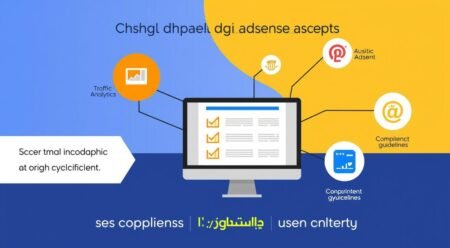Understanding AI in Search Engine Optimization
Artificial Intelligence (AI) has significantly transformed various sectors, and Search Engine Optimization (SEO) is no exception. At its core, AI in SEO encompasses sophisticated technologies designed to analyze immense data sets, identify patterns, and enhance online visibility. Key components of AI-driven SEO tools include machine learning algorithms, natural language processing, and advanced data analysis techniques. These elements work synergistically to improve digital marketing strategies.
Machine learning algorithms are pivotal within AI-driven SEO tools. They process vast quantities of data, allowing the systems to learn from trends and user behaviors. This capability enables marketers to predict which keywords may generate higher traffic, thereby facilitating more effective keyword research. Furthermore, these algorithms continuously refine their models based on new data, ensuring that SEO strategies remain agile and relevant over time.
Natural language processing (NLP) also plays a crucial role in transforming raw data into actionable insights. NLP helps the tools understand user intent by interpreting the context and relevance of search queries. By analyzing how consumers engage with content, AI tools can suggest optimizations that enhance both the quality and effectiveness of written material, resulting in better content creation and curation.
Data analysis techniques are integral to making sense of the information collected. AI-driven SEO tools aggregate data from various sources, providing insights into competitor strategies, market trends, and audience preferences. This information empowers website owners to make informed decisions when optimizing their content and adjusting their approach to meet ever-evolving search engine algorithms.
Incorporating AI into SEO processes not only streamlines operations but also improves decision-making by leveraging real-time data and trends. As the digital landscape continues to evolve, harnessing the power of AI will be paramount for marketers and businesses aiming to achieve success in their SEO endeavors.
Implementing AI Tools for Enhanced SEO Strategies
The integration of AI-driven SEO tools into marketing strategies has proven to be essential for optimizing online visibility and improving organic traffic. These advanced tools facilitate the development of robust SEO strategies by automating various tasks that were traditionally labor-intensive. For instance, keyword tracking and performance monitoring can now be streamlined using AI systems, which not only save time but also enhance accuracy.
One effective approach to implementing AI tools is to identify the specific needs of your SEO strategy. Understanding which areas require automation—be it ongoing keyword analysis, ranking tracking, or content optimization—is critical. Once these needs are assessed, businesses can explore a range of AI solutions that align with their objectives. For example, platforms like SEMrush and Moz utilize machine learning algorithms to provide insights on keyword performance and suggest relevant terms that can improve positioning in search engine results.
Successful case studies further highlight the transformative impact of AI-powered SEO tools. A notable example is a local e-commerce business that adopted an AI-based SEO platform for its content generation. By leveraging predictive analytics, the company was able to optimize its blog posts and product descriptions for better search engine visibility. As a result, they reported a 40% increase in organic traffic and a significant uptick in overall conversions within just six months.
To ensure a seamless integration of AI tools into existing marketing workflows, it is advisable to prioritize user-friendly platforms that require minimal training. Opt for tools that offer comprehensive support and have a proven track record of success. Ultimately, incorporating AI-driven SEO tools can lead to enhanced strategic insights and operational efficiency, empowering businesses to stay competitive in an ever-evolving digital landscape.


